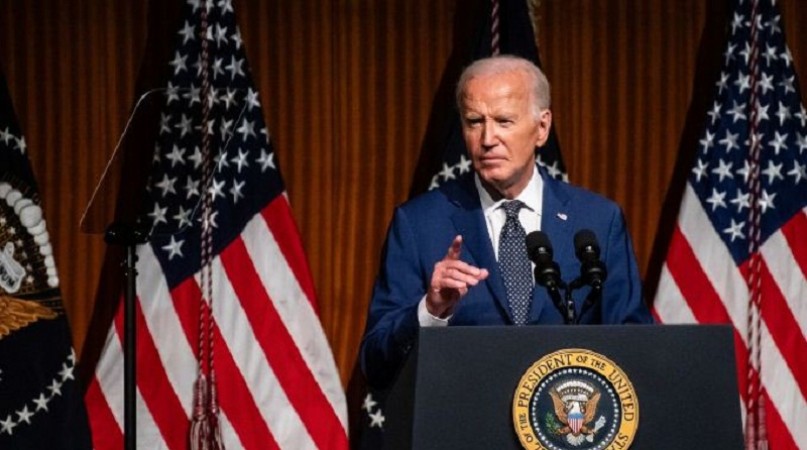
The Joe Biden administration has officially lifted a ban on the sale of offensive weapons to Saudi Arabia, marking a significant shift in U.S. policy. This decision, announced by the State Department on Friday, reverses a three-year-old restriction that was put in place to pressure Saudi Arabia to end its military involvement in the Yemen conflict.
A senior official from the State Department confirmed that the suspension on specific air-to-ground munitions transfers to Saudi Arabia has been lifted. The official stated, "We will now consider new transfers on a case-by-case basis, in line with the Conventional Arms Transfer Policy."
This week, the administration briefed Congress about the decision, with reports suggesting that sales could begin as early as next week. A person familiar with the matter revealed that the U.S. government had already initiated notifications about an upcoming sale on Friday afternoon.
A senior Biden administration official noted, "The Saudis have fulfilled their commitments, and we are ready to fulfill ours."
According to U.S. law, all major international weapons deals must undergo a review by Congress before they are finalized. In recent years, lawmakers from both parties have expressed concerns about supplying offensive weapons to Saudi Arabia, primarily due to the civilian toll from its military campaign in Yemen and various human rights issues. However, this opposition has lessened amidst ongoing conflicts in the Middle East, particularly following Hamas' attack on Israel on October 7.
Since March 2022, when a U.N.-led truce between Saudi Arabia and the Houthis was established, there have been no Saudi airstrikes in Yemen, and cross-border attacks from Yemen into Saudi Arabia have significantly reduced. The State Department also acknowledged the positive steps taken by the Saudi Ministry of Defense to enhance their civilian harm mitigation processes, partly due to the efforts of U.S. trainers and advisors.
The conflict in Yemen is widely regarded as a proxy battle between Iran and Saudi Arabia, with the Houthis having ousted a Saudi-backed government in 2014. The ongoing war, which has involved a Saudi-led military alliance, has resulted in hundreds of thousands of deaths and left 80% of Yemen's population reliant on humanitarian aid.
In 2021, President Biden took a firmer stance on weapons sales to Saudi Arabia, criticizing the kingdom's campaign against the Iran-aligned Houthis in Yemen, which led to severe civilian casualties. However, relations between the U.S. and Saudi Arabia have improved since then, particularly as Washington and Riyadh have cooperated closely following the October 7 attack by Hamas.
The Biden administration is also negotiating a defense pact and a civil nuclear cooperation agreement with Saudi Arabia as part of a broader deal, which includes the potential normalization of relations between Saudi Arabia and Israel. Despite progress in these negotiations, normalization remains a complex and challenging goal.
This decision to lift the weapons ban comes at a time of heightened regional tensions, with Iran and Hezbollah threatening retaliation against Israel after Hamas' political leader, Ismail Haniyeh, was killed in Tehran. The Houthis have also emerged as strong supporters of Hamas in its conflict with Israel, with reports of attacks on commercial ships linked to Israel earlier this year.